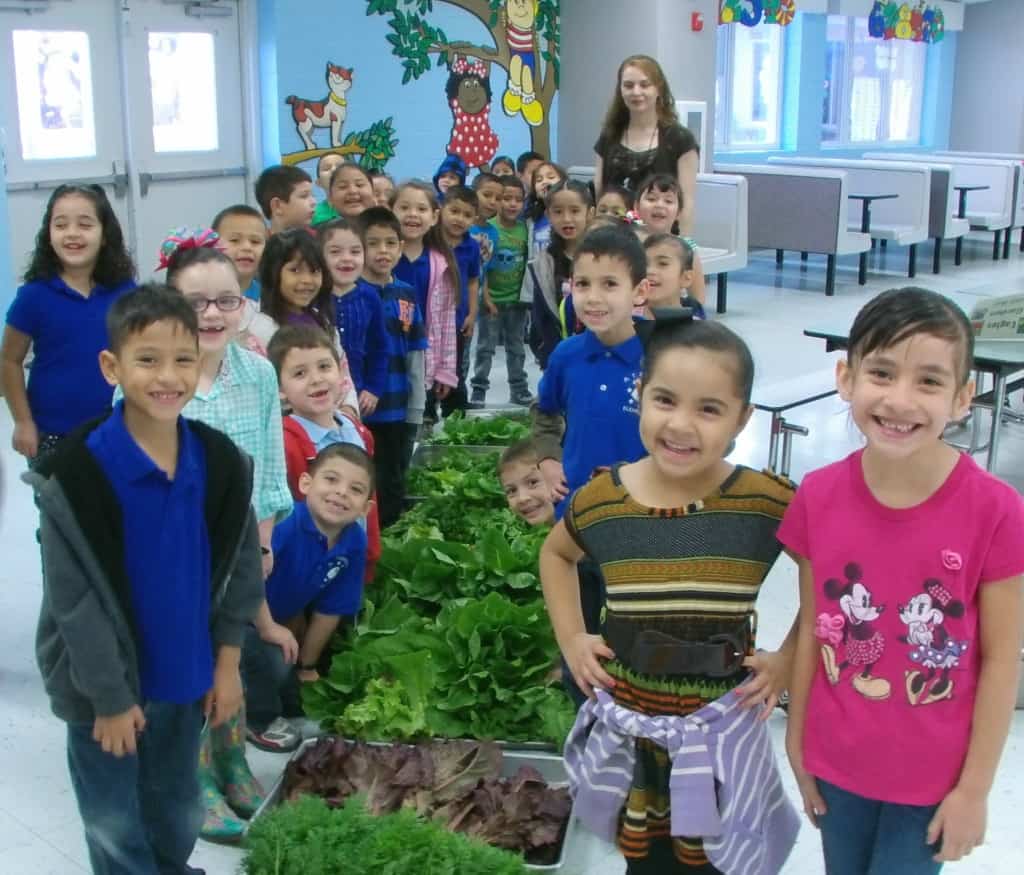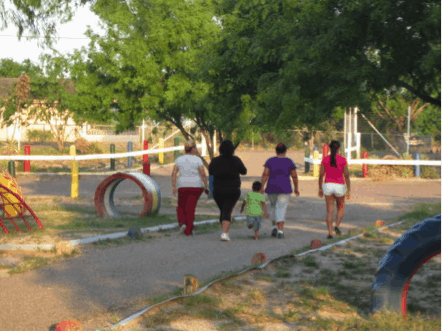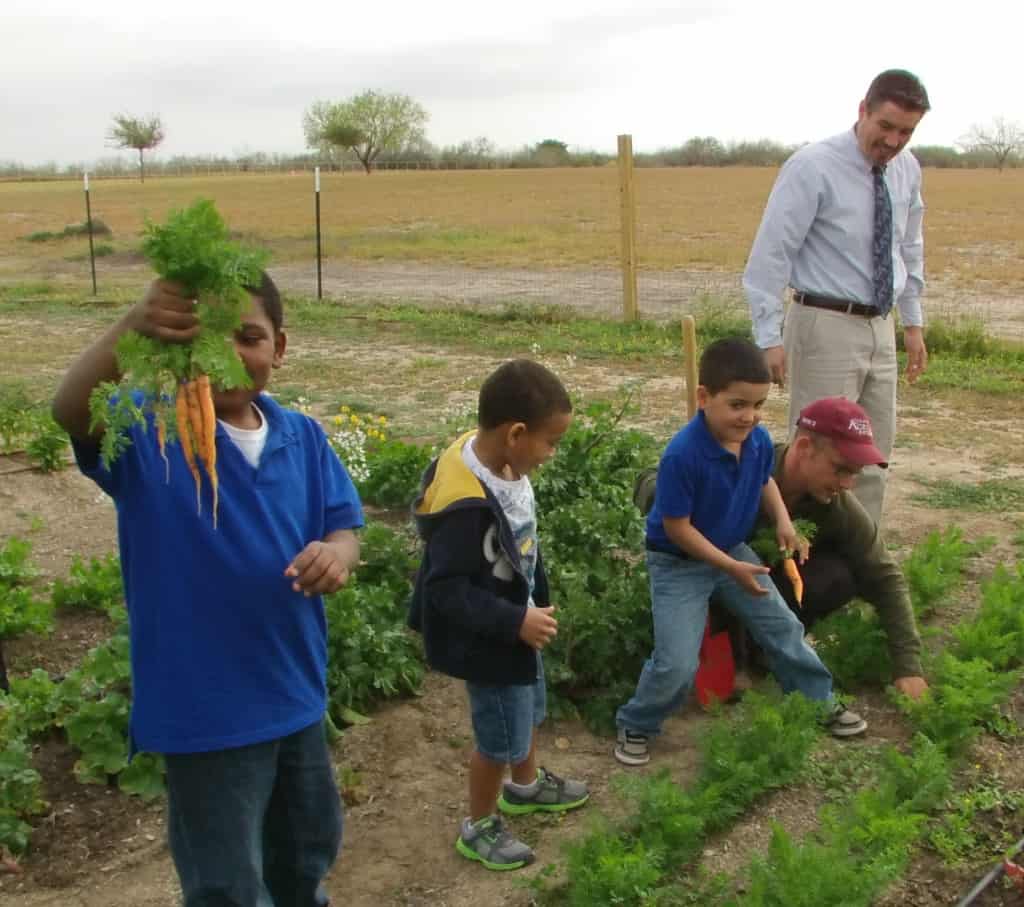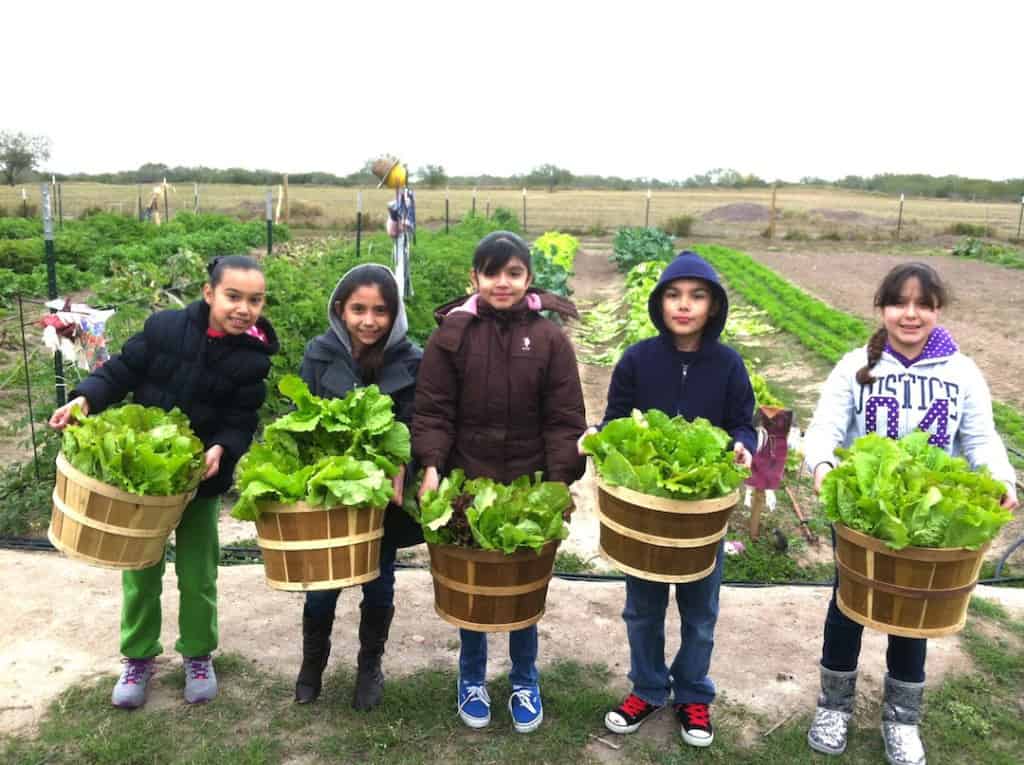Social work researchers help Starr County transform to improve health

One morning this past May, students at R.T. Barrera elementary school in Rio Grande City, TX, gathered around the new school garden. They filed in with empty cafeteria trays and filed out with over 250 pounds of fresh lettuce, tomatoes, cucumbers, and carrots grown by themselves and their teachers. The fresh veggies were used for the cafeteria’s salad bar—a healthy, seasonal option that did not exist before Transforming Texas.
Transforming Texas is a federally funded initiative implemented in Starr County, on the Texas-Mexico Border, by Texas A&M AgriLife Extension in collaboration with The University of Texas at Austin’s School of Social Work.
“The goal is to spark local, sustainable initiatives to make healthy choices accessible to residents,” said Dr. Catherine Cubbin, associate professor at the School of Social Work. “We can talk to people all day about healthy habits, but if they don’t have places to buy fresh food at affordable prices or safe places to exercise, they won’t be able to act on their desires to make healthy choices for themselves and their families.”
Starr County is one of eighteen communities throughout Texas receiving funds from the U.S. Centers for Disease Control and Prevention to reduce chronic disease and promote health equity.
There are several reasons why Starr County was included in this federal initiative. On the one hand, forty percent of county residents live in poverty, compared to seventeen percent statewide. The county has one of the highest diabetes rates in the U.S., and most of it can be considered a “food desert,” that is, an area that lacks access to affordable, healthy food. On the other hand, county residents are very well connected with each other, a must for the success of any community-based project. In addition, before many farms moved across the border to Mexico, Starr County grew its own food, and hence residents have valuable farming skills.
Transforming Texas began in February of 2012 with the establishment of a county-wide coalition, Working on Wellness (WOW). WOW established three priorities for the county: tobacco-free living, healthy eating and active living, and high-impact clinical and preventative services. Texas A&M AgriLife Extension and Cubbin’s team provide support to the coalition’s efforts.

“We provide technical assistance and document the challenges and successes of the coalition in a supportive and unobtrusive way,” Cubbin said. “We want to demonstrate accountability and at the same time provide empirical findings that WOW can use to sustain their great work once federal money runs out later this year.”
To date, WOW efforts with the support of Transforming Texas have generated remarkable change in Starr County. Eight schools and one community have established their own gardens. Residents can exercise in three renovated parks and three new walking trails. A local farmer has successfully introduced a mobile market that, during its first 18 months of operation, brought over 46,000 pounds of vegetables and fruits to areas that otherwise would have no access to locally grown, fresh produce. A smoke-free ordinance in the community of Roma has reached an estimated 9,800 residents in restaurants and public spaces. A smoke-free policy on the Starr County campus of South Texas College has cleared the air for nearly 3,000 students, faculty, and staff. And community-wide health initiatives in partnership with the school district and local hospital have increased county residents’ knowledge about diabetes and heart disease.

“People in Starr County are very community-oriented and have fully embraced the program,” Cubbin said. “During the first seven months of planning, county residents made over $60,000 of in-kind donations, including land surveys, garden supplies and maintenance, lighting, and meeting spaces.”
As the program reaches its final and third year, WOW initiatives are proving to be sustainable. They have also produced positive, unexpected outcomes. For instance, gardens have been integrated into schools’ curricula that extends learning outside the classroom. So far, two greenhouses have been established to grow seedlings from one harvest to the next.
WOW efforts are also making a clear impact on individual lives. An elderly member of the community diagnosed with diabetes, for example, lowered his A1C levels (a target measurement used for diagnosing diabetes) by half in a single year, once he was able to change his diet thanks to Transforming Texas gardening and healthy eating initiatives.
And the impact on peoples’ lives goes beyond health measures. As a community member put it, the gardens “cultivate much more than produce. They cultivate pride among the students that will transfer to other areas of their lives.” Or, as a WOW coalition member summarized, it, Transforming Texas is a force that encourages people in Starr County to “make something happen.”
Posted June 25, 2014. By M. Andrea Campetella.


